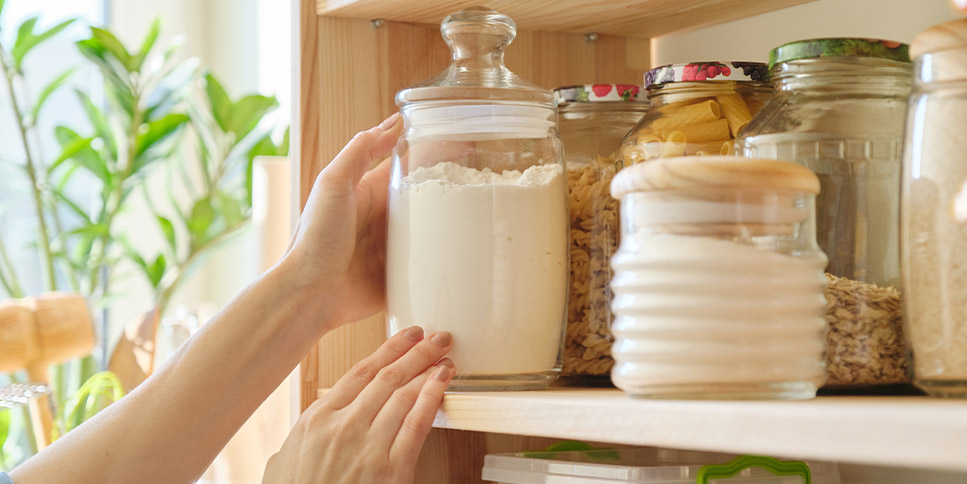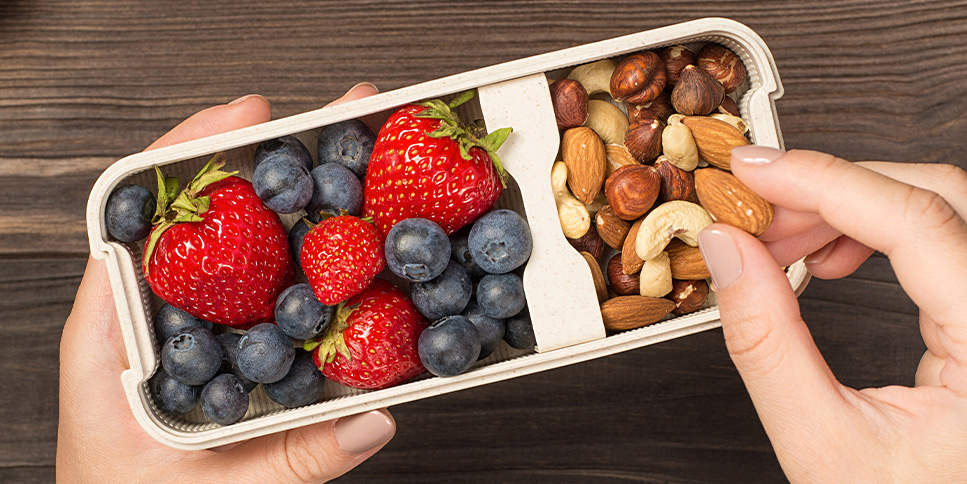It’s often said that the state of our homes reflects the state of our mental health, as well. So, if you’re feeling more stressed out than usual, spring cleaning might be the perfect thing to help you get right back on track. By decluttering your physical space, it can also help to remove the ‘mental clutter’ that might be causing you any additional stress.
While most people don’t tend to look forward to cleaning, they usually do feel better after it. So, this year, instead of looking at spring cleaning as a chore, let’s consider it an act of self-care thanks to its many health benefits. Not only does cleaning reduce stress, it can also support a strong immune system, increase your productivity, improve your mood and make you feel accomplished, and encourage a healthier lifestyle.
In the spirit of creating a healthier lifestyle, let’s take a closer look at some ways that you can continue making positive strides in your personal health and wellness journey this year by cleaning up your pantry.
Toss Out Expired Items
If we asked you to name all of the items in your pantry right now would you be able to do so? If not, then let the spring cleaning begin. Start by taking everything out of your pantry. Then as you remove items, make sure to look at all of the expiration dates. If products are expired, get rid of them. This way you won’t have to worry about you or your family using expired products (that may not be safe to eat) throughout the year. And if there are items that are expiring soon, make sure to put these products toward the front of your pantry when you reorganize everything. This will allow you and your family to use these products before they go bad.
Give Your Pantry A Healthy Makeover
While you’re reorganizing the products in your pantry, make sure to check the nutrition labels, as well. When you see an ingredient (or lots of ingredients) that you can’t pronounce, chances are that it’s something that isn’t fueling your body in a healthy way. So, you might want to consider getting rid of those items.
As a general rule of thumb, try to stick with products that only have one ingredient (or a few ingredients) on the label, and avoid packaged and boxed foods. These types of foods generally are filled with excess sugar, sodium, and artificial ingredients.
Go With Whole Grains
Cooking healthy meals at home starts with having healthy ingredients in your pantry. Another easy way to make your pantry healthier is by adding whole grain products to it. Whole grains are also a great source of minerals, fibers, and B vitamins. So, rather than consuming white bread, white flour, sugar-sweetened cereal, and enriched pasta, give your pantry a healthy whole grain makeover and go with whole grain bread, whole grain flour, whole grain cereal, and whole grain pasta.
Replace Refined Oils With Unrefined Oils
Refined oils like canola, sunflower, and vegetable oil are all extracted using heat. While this technique speeds up the process of oil extraction and results in more oil, extraction using heat also leads to a loss of natural nutrients, as well as a loss of aroma and flavor. The heat-extracted oil is then treated with various chemicals and subjected to a deodorizing and bleaching process.
On the other hand, unrefined oils, which are also referred to as cold-pressed oils, are extracted using pressure, not heat. This technique results in most of the natural nutrients remaining intact. Avocado oil, extra virgin olive oil, and coconut oil are all excellent unrefined oil options to add to your pantry.
Steer Clear Of Added Sugar
The average American consumes around 17 teaspoons (68 grams) of added sugar per day, which is more than the upper limit that some experts recommend of 6 teaspoons (25 grams) for women and 9 teaspoons (37 grams) for men. Added sugar has low nutritional value and adds calories that we don’t necessarily need. Added sugar comes in many different forms and may be called granulated sugar, high fructose corn syrup, dextrose, or molasses on nutrition labels.
You can cut back on a good amount of added sugar by limiting the amount of soda, energy drinks, sports drinks, and fruit drinks that you consume. These drinks contribute 44% of the added sugar in the American diet. So, try hydrating with water rather than these sugary beverages.
And it’s not only sugary drinks that you need to be aware of. Grain and dairy-based desserts like cakes, pies, donuts, and ice cream account for 18% of the intake of added sugar in the American diet, as well. Added sugar can also be found in sauces, canned foods, and breakfast foods. So, make sure to check the labels first before you consume foods with added sugar.
Pick Plain Over Flavored
When it comes to certain products like oatmeal, it’s better to go plain over flavored. There’s no denying that flavored instant oatmeal is convenient, but it also contains added sugar and other unnecessary processed ingredients. For a much healthier option, go with plain oatmeal and add toppings like blueberries, cinnamon, or a little honey yourself.
The same can also be said about popcorn, which is a whole grain that you can substitute chips for. Just make sure to go with plain popcorn, not buttered and seasoned popcorn. If you’d like to season your plain popcorn for taste, you can add a little extra virgin olive oil, nutritional yeast, and/or sea salt.
Donate Products That You’re Not Going To Use Anymore
If there are products in your pantry that you know you’re not going to be using/needing anymore, consider donating these items to food banks, or giving the food items to your family and friends instead of just throwing them out.
We’d also like to point out that just because it’s called spring cleaning, it doesn’t mean that you have to completely empty out and get rid of everything in your pantry by tomorrow. All of these healthy swaps and changes can be done gradually over time. The important thing is that you’re in the process of setting yourself and your family up for success in the long run when it comes to eating healthier and living your best life.
*The links used in this article are being provided as a convenience and for informational purposes only; they do not constitute an endorsement or an approval by Iovate Health Sciences International Inc. or any of its affiliates (“Iovate”) of any of the products, services or opinions of the corporation or organization or individual. Iovate bears no responsibility for the accuracy, legality or content of the external site or for that of subsequent links. Contact the external site for answers to questions regarding its content.







